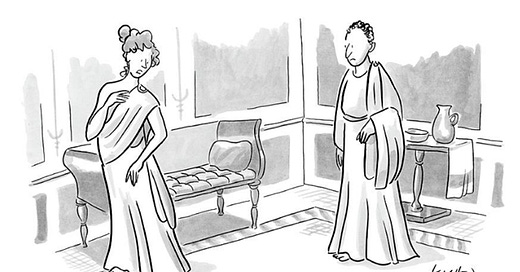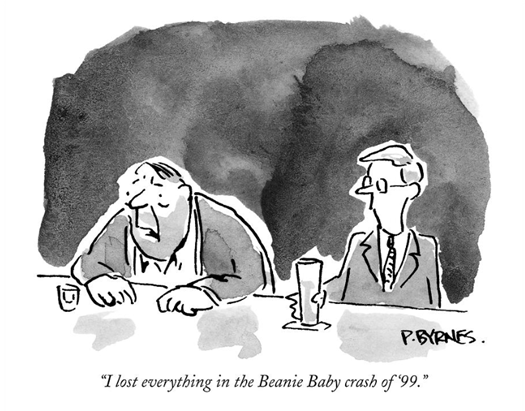Before I was a financial advisor (and before I was a family office generalist and before I was a law student), I was a classicist.
A well-worn career path, I know.
Most of the time when I’d tell people I studied Classics, they’d either say “oh like Tom Sawyer?” or “why?”
Well first of all, no, not Tom Sawyer. Aeschylus. Catullus. Herodotus. Cicero. Homer. The OGs.
And second, why? Because the Classics form the basis of all Western wisdom. Even when it comes to financial planning.
Take, for example, the famous Delphic Maxims: those three statements that greeted visitors to the Temple of Apollo at Delphi.
Gnothi seaton: know thyself
Meden agan: nothing too much
Engua para d’Ata: give a pledge and ruin is at hand
These are huge concepts that can apply to so many areas of life. But I want to focus their meaning on the way I approach investing and planning.
“Know thyself” is another way of saying “understand yourself.” What is important to YOU? What is YOUR financial goal? What is YOUR time horizon? What do you want your CHILDREN to inherit from you, financially or otherwise?
When you see meme stocks go to the moon (and back), how does that make you feel? When your friend tells you he’s making a killing in bitcoin, or real estate, or a high-yield online savings account, do you think “I should do that too?” Know thyself and consider how these financial decisions fit into YOUR life; not theirs.
“Nothing too much” - or in other words, diversify. Spread your risk. No single strategy or asset type is going to do everything you need it to do. Nor will it always be the one to deliver the best returns year over year. Everything is cyclical, everything responds to new developments differently, everything has a role to play. You cannot guarantee that any particular investment will be doing what you want when you need it. In challenging times you need options, and the only way to have options is to diversify your strategies broadly.
“Give a pledge and ruin is at hand” … what the heck does that mean? The Greek engua (commonly translated as “pledge”) can also mean a “strong affirmation” or “statement of great certainty.” I like to understand this as “overconfidence.” So: overconfidence brings ruin. We’ve all heard stories of legendary investors who made high-conviction bets and won big. (Looking at you, George Soros…) But those bets were much more likely to go the other way. And in fact, they do mostly go the other way. You just don’t hear those stories. Because losers usually don’t write books and become celebrities.
It’s okay to make high-conviction bets. I’m all for acting on a gut instinct. But do you always put all your chips on double-zero? See above: nothing too much. Size your bets according to their potential for risk, not just return. Don’t go all-in all the time. Even successful startup founders will tell you about their flops, or how they came within a hair's breadth of failure countless times.
Heed the words of the ancient Oracle and you too might enjoy financial security and prosperity. Or slide into my DMs and I’ll help you out.








